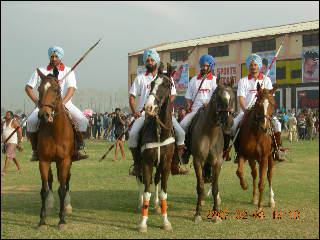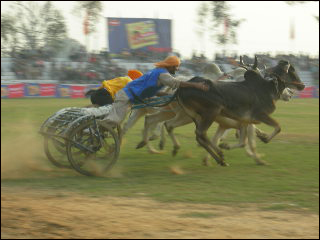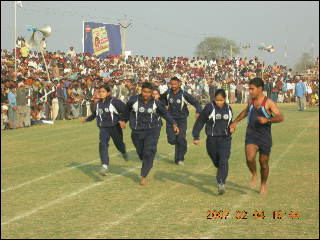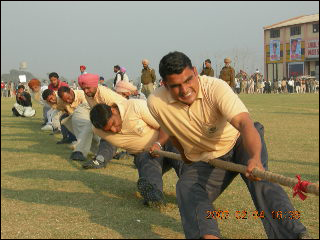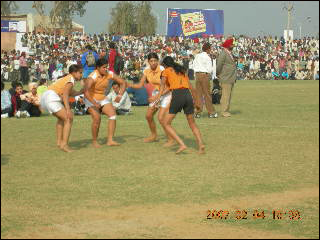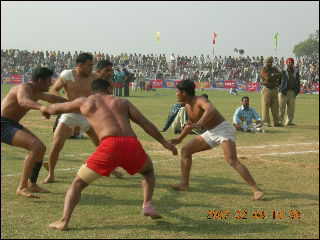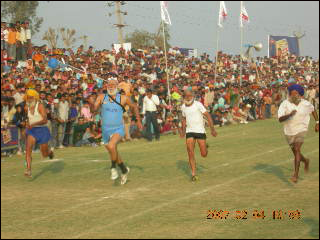 Before two days I was sick and tired and was unable to decide what to read and what not as my internet connection was going to remain down for next 48 hours. I have thousands of e-books but to read something on computer is real pain in the wrong place. After much confusion and hours of absentminded exercise I decided to continue with the two books I was reading at that time. But after few hours of struggling I decided to continue with only one book at a time and that was obviously the War and Peace by Lev Nikolayevich Tolstoy. I found the other book, The Google Story by David A. Vise, full of information but very boring and rather chockfull. I had finished about 20 chapters from book I of War and Peace and now I am in no mood to continue with that book for next few days. But I must admit that I have enjoyed this book a lot and it gave me immense pleasure and satisfaction of reading unlike what happened with Dostoevsky’s Idiot. I am also reading few e-books by the same author which are in public domain now and can easily be downloaded from the web or are available for online reading. Few essays by Tolstoy and his letter to the editor of Free Hindustan with introduction by Mohandas K. Gandhi are worth a read. He also enjoyed writing tales and fables for children and was very much impressed by the ancient Indian books like Panchtantras.
Before two days I was sick and tired and was unable to decide what to read and what not as my internet connection was going to remain down for next 48 hours. I have thousands of e-books but to read something on computer is real pain in the wrong place. After much confusion and hours of absentminded exercise I decided to continue with the two books I was reading at that time. But after few hours of struggling I decided to continue with only one book at a time and that was obviously the War and Peace by Lev Nikolayevich Tolstoy. I found the other book, The Google Story by David A. Vise, full of information but very boring and rather chockfull. I had finished about 20 chapters from book I of War and Peace and now I am in no mood to continue with that book for next few days. But I must admit that I have enjoyed this book a lot and it gave me immense pleasure and satisfaction of reading unlike what happened with Dostoevsky’s Idiot. I am also reading few e-books by the same author which are in public domain now and can easily be downloaded from the web or are available for online reading. Few essays by Tolstoy and his letter to the editor of Free Hindustan with introduction by Mohandas K. Gandhi are worth a read. He also enjoyed writing tales and fables for children and was very much impressed by the ancient Indian books like Panchtantras.
In his letter to the editor of free Hindustan Tolstoy writes:
The reason for the astonishing fact that a majority of working people submit to a handful of idlers who control their labour and their very lives is always and everywhere the same - whether the oppressors and oppressed are of one race or whether, as in India and elsewhere, the oppressors are of a different nation.
This phenomenon seems particularly strange in India, for there more than two hundred million people, highly gifted both physically and mentally, find themselves in the power of a small group of people quite alien to them in thought, and immeasurably inferior to them in religious morality.
Further he argues:
What does it mean that thirty thousand men, not athletes but rather weak and ordinary people, have subdued two hundred million vigorous, clever, capable, and freedom-loving people? Do not the figures make it clear that it is not the English who have enslaved the Indians, but the Indians who have enslaved themselves?
When the Indians complain that the English have enslaved them it is as if drunkards complained that the spirit-dealers ...have enslaved them. You tell them that they might give up drinking, but they reply ...they cannot abstain, and that they must have alcohol to keep up their energy.
Most memorable line that surely is going to leave a long lasting impression on my mind from this letter was this one:
In the spiritual realm nothing is indifferent: what is not useful is harmful.Mohandas Gandhi was very much influenced by the writings of Leo Tolstoy and what he says in the introduction to this letter confirms that strongly:
To me, as a humble follower of that great teacher whom I have long looked upon as one of my guides, it is a matter of honour to be connected with the publication of his letter, such especially as the one which is now being given to the world.
He concludes his introduction to the letter with the following lines:
There is no doubt that there is nothing new in what Tolstoy preaches. But his presentation of the old truth is refreshingly forceful. His logic is unassailable. And above all he endeavours to practise what he preaches. He preaches to convince. He is sincere and in earnest. He commands attention.
Now that shows how deeply he was influenced by Tolstoy’s preaching. I don’t know whether or not he was regularly communicating with the editor of Free Hindustan or with Mahatma Gandhi but one thing I am very sure about that he had deeply studied Indian philosophy, culture and literature.
He preferred not to refer his book War and Peace as a novel and said even less it was a history book. In the epilogue II, ch. 1 he says:
History is the life of nations and of humanity. To seize and put into words, to describe directly the life of humanity or even of a single nation, appears impossible.
Probably he understood this after knowing and understanding why Indians don’t write history or why they are against all kind of documentation especially if related to the history. Few of his quotes from this book force me to continue with my reading until I finish it in the near future:
Everything comes in time to him who knows how to wait.
The strongest of all warriors are these two — Time and Patience.
Words like this constantly encourage me to read more and more from his books and I find myself in meditative state after few hours of constant reading. The Kingdom of God is Within You. This is the book I have planned to read after I am done with the War and Peace. This book, classified by many as a work of existentialism, was written by Tolstoy during later years of his life and is regarded as most important of his religious works.
He truly was a genius. Compared with Dostoevsky his work is much more philosophical and very less complicated and to the point. I only have read two books by Dostoevsky and yesterday had had the third one, crime and punishment by the same author and that too a hard copy. But I have planned to gift it to my father and to continue with my reading of Tolstoy. After six months when I will be done with Tolstoy I will give it a second thought.
He is regarded, by some, as the father of the non-violence movement began during the later part of his life. Tolstoy died in 1910 and before that he formulated a unique Christian philosophy which adopted non-resistance to evil as the proper response to aggression. And the best thing about him was that he opposed the idea of private property and most of all the institution of marriage. Eight years after his death, his wife was heard to say, "I lived with Lev Nikolayevich for forty-eight years, but I never really learned what kind of man he was."
==========================================================================


 For quite sometime now bees from the both ends are buzzing whether to booze or not to booze. Elite of the society and few institutions are trying to fuddle Modi Government to lift almost 50 year old ban on alcohol in the state of Gujarat. And all those who are against this ban easily get liquor and can enjoy it freely in Gujarat but they still want total freedom or ‘Purna Swaraj” as they don’t want to drink in the dark corners inside their house. Excitement to manage and get liquor somehow from local bootleggers is more funny and hilarious an exercise than boozing itself actually. For years, since my hostel days I am enjoying this exercise and still very happy with the same. I am in double mind now whether to support or not to support ‘the elite of the society’ to lift ban.
For quite sometime now bees from the both ends are buzzing whether to booze or not to booze. Elite of the society and few institutions are trying to fuddle Modi Government to lift almost 50 year old ban on alcohol in the state of Gujarat. And all those who are against this ban easily get liquor and can enjoy it freely in Gujarat but they still want total freedom or ‘Purna Swaraj” as they don’t want to drink in the dark corners inside their house. Excitement to manage and get liquor somehow from local bootleggers is more funny and hilarious an exercise than boozing itself actually. For years, since my hostel days I am enjoying this exercise and still very happy with the same. I am in double mind now whether to support or not to support ‘the elite of the society’ to lift ban.





